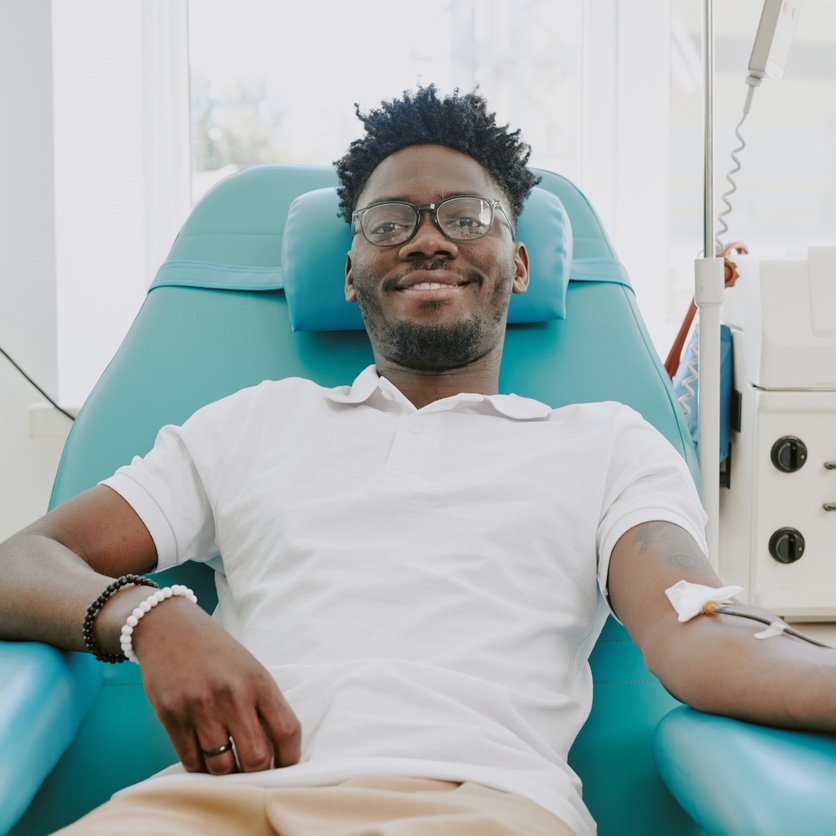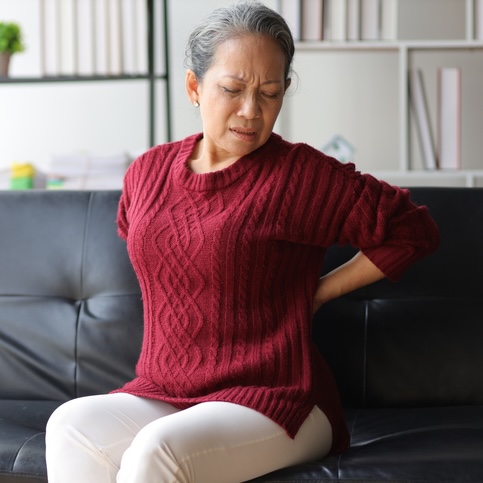AllCare is pleased to announce the opening of its newest location in Braselton, expanding access to high-quality, patient-centered healthcare for...
Arthritis Treatment in Georgia
Effective Arthritis Pain Relief
If you’re experiencing joint stiffness, achiness, and tenderness, you might be dealing with arthritis symptoms—a common condition that can affect anyone and is the leading cause of disability in the U.S. Arthritis can disrupt daily life, causing pain, limiting movement, and even impacting sleep, mood, and social independence. The compassionate primary care physicians at AllCare Primary & Immediate Care can diagnose your arthritis, identify what causes arthritis, and develop a personalized treatment plan to help relieve your pain and improve your quality of life.

Why Arthritis Care Matters:
Our Approach to Arthritis Care
According to the CDC, nearly 60 million people in the U.S. have arthritis, with most being over age 45. Arthritis can cause ongoing discomfort or flare-ups intermittently, with pain that may appear in one or multiple areas of the body. It can make everyday tasks like climbing stairs or opening jars difficult, and signs of arthritis often worsen at certain times or after specific activities. In some cases, the skin over affected joints may become swollen and red. While there is no cure for arthritis (can arthritis be cured), treatments such as physiotherapy, arthritis medication, and, in severe cases, surgery can slow its progression. An AllCare primary care physician can diagnose your condition and provide a personalized treatment plan to help improve your quality of life.
Arthritis Treatments & Diagnosis Offered in Georgia

Understanding the Different Types of Arthritis
There are over 150 different types of arthritis, and the cause for some of them is unknown. In some cases, arthritis can be caused by disease, infection, genetic defect, injury, or overuse. Depending on the type of arthritis, it may affect other organs, including the eyes, heart, and skin.
Some of the most common forms of arthritis are:
- Osteoarthritis: The most common form of arthritis, often affecting weight-bearing joints like the knees, hips, and spine. It destroys cartilage and narrows joint space, causing reduced function. Mainly affects older adults but can impact younger people due to injury, overuse, or obesity.
- Rheumatoid arthritis: An autoimmune disease affecting joint linings, potentially causing severe joint damage if untreated. About 1 in 5 people with rheumatoid arthritis may develop nodules on their skin.
- Psoriatic arthritis: Inflammation of the skin and joints, often starting between ages 30 and 50. About 10-30% of people with psoriasis will develop this form of arthritis, often showing symptoms like discolored and pitted fingernails.
- Juvenile arthritis: An autoimmune disease affecting nearly 300,000 children under 16, causing joint inflammation, pain, stiffness, and swelling. It can hinder normal growth and development.
In addition, there are other forms of arthritis or related diseases, including gout, lupus, scleroderma, and ankylosing spondylitis. To determine which type of arthritis you have, schedule an appointment with an AllCare primary care physician who can offer a proper arthritis diagnosis and specialized treatment plan.
Who Can Benefit from Arthritis Treatment?
We understand how uncomfortable and sometimes even debilitating arthritis can be. If you’re experiencing any signs of arthritis, it’s important to talk with our expert team who can determine the type of arthritis you are experiencing and provide a personalized treatment plan to help relieve your pain. Those who can benefit from AllCare arthritis treatments include:
- Anyone who has severe joint pain that lasts longer than a week.
- Those with stiffness that seems to be getting worse or limits your movement in a joint.
- People who are experiencing new or worsening flare-ups of their symptoms.
- Anyone suffering from pain even after resting.
- Those who have joints that turn red or hot.
- Those who experience a limited range of motion that seems to get better once they get moving.
- People with clicking or cracking when they bend or move a joint.


How to Get Treated for Arthritis at AllCare Primary & Immediate Care
We know that arthritis can be exhausting. That’s why the expert team at AllCare Primary & Immediate Care offers compassionate, comprehensive diagnoses and personalized treatment plans for arthritis, ensuring you get the care you need in an environment that’s comfortable and convenient.
- Schedule Your Appointment: Contact AllCare Primary & Immediate Care to schedule your arthritis treatment appointment and discuss your symptoms.
- Visit AllCare Primary & Immediate Care: Follow all instructions for your visit. Once here, our physicians will confirm your medical history and evaluate your symptoms.
- Get Your Personalized Treatment Plan: Our expert will perform any necessary examinations and tests and develop a treatment plan that may include medication management, physical therapy recommendations, lifestyle changes, and follow-up guidelines, as well as any surgical recommendations for severe arthritis.
Online Doctor Visits and Telehealth Services
Experience the convenience of telehealth appointments at AllCare Primary & Immediate Care. Our telemedicine services are designed to provide you with seamless access to healthcare without the need to leave your home. Whether you need an online doctor’s appointment for immediate or primary care, AllCare Primary & Immediate Care’s got you covered. With our online telehealth services currently available to individuals located in Georgia, you can connect with our experienced urgent and primary care physicians via secure video calls.
At AllCare Primary & Immediate Care, we are expanding our virtual healthcare access to all services previously offered in person. This includes:

Frequently Asked Questions
What can I do to help with arthritis pain?
While there is no one-size-fits-all treatment for arthritis, there are several treatments that can help ease some of your discomfort, including analgesics, medications, lifestyle changes, physical therapy, and even surgery. It’s best to talk with a physician to determine the best arthritis pain relief treatment for you.
Can arthritis kill you?
If left untreated, some forms of advanced arthritis can eventually be life-threatening. But even if arthritis isn’t severe, it can disrupt your quality of life, especially if undiagnosed or untreated for long periods of time. That’s why it’s important to discuss your symptoms with your doctor and devise a treatment plan as soon as possible, especially if you have a form of inflammatory arthritis.
Should I exercise if I have arthritis?
Yes. If you have arthritis, it’s important to keep exercising. Regular activity can help strengthen the muscles around your joints, which can support and protect them. Remember, it’s normal to feel sore at first, and it’s important to note that you’re not making your joints any worse, especially if you haven’t exercised in a while. While past sports injuries might increase the risk of osteoarthritis in a specific joint, it’s not caused by exercising too much.
Can arthritis be cured?
As of today, there is no cure for arthritis, but with the proper treatment plan and lifestyle modifications, you can reduce the pain and discomfort associated with it. In addition, the Arthritis Society has funded scientists working toward permanent solutions that may one day give us a future without arthritis.
Can cracking my knuckles cause arthritis?
While your parents may have told you cracking your knuckles could cause arthritis, it’s more likely they were just annoyed by the noise. After all, there is no real evidence that knuckle cracking causes arthritis. If you feel pain when cracking your knuckles, you may have an abnormality in the structure of the joint, like loose cartilage or injured ligaments. Seek medical attention if you have severe pain or pain that doesn’t resolve after a day or two when cracking your knuckles.
schedule your arthritis treatment appointment
The Latest Healthcare News
Check out our blog to learn more from our team about the latest medical advancements, health tips, and primary care news.
Lauren Schwartz, F.N.P.-C. of AllCare Appeared on “The Weekly Check-Up” Radio Show
Lauren Schwartz, F.N.P.-C. of AllCare Primary & Immediate Care appeared as a featured guest on “The Weekly Check-Up” on December 21, 2025. The...
AllCare’s Dr. Racheal Daniels Discusses Holiday Health and Primary Care on WSB-TV’s “Daily 2”
Dr. Racheal Daniels of AllCare Primary & Immediate Care recently appeared on WSB-TV’s Daily 2 to discuss the importance of prioritizing primary...
Related Services
Our related healthcare services extend beyond immediate care to include preventive care such as routine physical exams, chronic disease management for conditions like diabetes, and specialty care referrals for more complex health issues.










